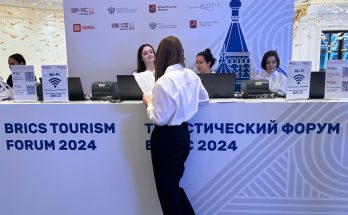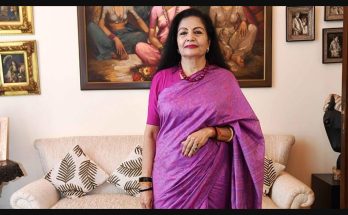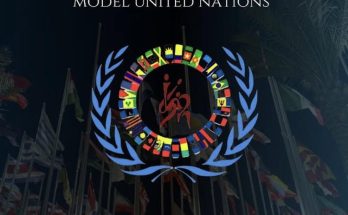
HANOI/DA NANG: Buddhism, Bollywood and Bapu – these three Bs cohered into an exquisite symphony at an Indian community reception in Ha Noi held in honour of President Ram Nath Kovind, illuminating myriad cultural ties that bind India and Vietnam.
Cultural bonding and diplomacy were in full flow during President Kovind’s November 18-20 visit to Vietnam, his first trip to an ASEAN country. In fact, the president began his visit to Vietnam on November 18 in the picturesque coastal resort city of Dan Nang – home to the Hindu Cham civilisation that flourished centuries ago. The temples in this complex were built by the kings of Champa between the 4th and 13th centuries AD.
Cham Connect

In Dan Nang, President Kovind visited the Museum of Cham Sculpture and travelled to the UNESCO world heritage site of My Son, before heading to Hanoi for diplomatic engagements. The Archaeological Survey of India is proactively working on the conservation and preservation of three groups of temples in My Son.

The Cham Museum is a vivid reminder of deeper civilizational connect between India and Vietnam. For Indians, specially Hindus and also Buddhists, the place has an immediate emotive resonance – sculptures of Hindu goods – Brahma, Vishnu, Mahesh, Ganesha, along with Nandi Bull, evoke mythological memories, reminding one of the ephemerality of time and robustness of spiritual connections.
UNESCO has described the My Son Sanctuary as “an exceptional example of cultural interchange, with an indigenous society adapting to external cultural influences, notably the Hindu art and architecture of the Indian sub-continent.” The Cham community is among 50 ethnic groups living in and around Da Nang, and they share cultural and religious practices with Indians. The majority of Cham in Vietnam are Cham Balamon or Hindu, but there are also Cham Bani, who follow Islam.

“The civilizational relationship between India and Vietnam is over 2000 years old and is best represented by the Hindu and Buddhist remains of the Champa civilization in Central and Southern Vietnam,” India’s ambassador to Vietnam P. Harish told India Writes Network and India and World magazine.
“There is a strong civilizational and cultural connect between India and Vietnam that harks back to the Champa civilisation. Buddhism forms an enduring bond,” Aftab Seth, India’s former ambassador to Vietnam, told India Writes Network.
Cultural Alchemy

The age-old India-Vietnam cultural alchemy came alive at an Indian community reception addressed by President Kovind in Hanoi on November 19. The elegantly-choreographed function began with a stirring trumpet performance by monks of Buddhist Sangha, followed by the singing of Sabamarmati ke Sant by Vietnamese girls, marking Vietnam’s tribute to the 150th birth anniversary of Mahatma Gandh. The show-stealer was the spirited singing of the old Sholay song – “Yeh dosti hum nahin todenge” (we will not break this friendship) – by students of University of Hanoi, which beautifully evoked emotive connect between the people of India and Vietnam.

Placing the fusion of ancient and contemporary cultural connections between India and Vietnam in perspective, President Kovind said: “India-Vietnam friendship is civilizational. Our relations have been exceptionally warm and cordial. Our people have stood by each other during most difficult times.”
“Our founding fathers – Mahatma Gandhi and President Ho Chi Minh have guided us on a shared path. I have come here to deepen those enduring ties.”
He lauded the Buddhist Sangha for promoting friendship between India and Vietnam. “Monks and merchants brought Indian culture, philosophy and religion to the shores of Vietnam. Buddhism, Hinduism, Brahmi script and Sanskrit language soon, thereafter, took roots in this country.” As a tribute to age-old ties symbolised in world-famous Cham temples, President Kovind planted a banyan tree there, a symbol of the shared spiritual journey.

This cultural connect is translating into popularity of yoga and Indian TV serials. “There are a number of similar cultural traditions between the two peoples and in recent years Buddhism, Yoga and Indian television serials have emerged as strong cultural bonds. Thousands of Vietnamese participate with passion and enthusiasm in International Day of Yoga celebrations, year after year, in various cities of Vietnam,” said Mr Harish. “There is a huge interest in Indian culture and opening of the Swami Vivekananda Cultural Centre and celebration of popular Indian festivals such as Holi, Diwali, and Ganesh Chaturthi at the Centre have received enthusiastic participation by thousands of Vietnamese who have enjoyed their Indian cultural immersion experience at such festivals.”
Being Indian in Vietnam

The Indian community in Vietnam comprises barely 5000 Indians, mostly living in Ho Chi Minh City, but they have emerged a crucial connector and bridge-builder between the two countries. Mr Kovind was all praise for the Indian community in Vietnam: “The Indian community in Vietnam has many accomplishments to itself. Through hard work and dedication, you have earned a name for yourself and pride for us. Our IT professionals and technology entrepreneurs are helping build digital pathways in this country.” He exhorted the Indian community in Vietnam to join us in India’s transformational journey, as knowledge partners, as investors and as cultural ambassadors.
Looking ahead, as India and Vietnam pushes the envelope for their multi-faceted partnership, this unique cultural connect will play an important role in scaling up strategic and economic ties to new heights. “India and Vietnam have been together in a cultural journey for ages. And now both of us are on a similar transformational economic path,” as President Kovind said.
As 2019 marks the 150th birth anniversary of Mahatma Gandhi as well as the 50th death anniversary Vietnam’s iconic leader Ho Chi Minh, the next year will see a greater focus on blending cultural connections with deepening strategic and economic partnership between the two countries.
(Manish Chand is Editor-in-Chief of India Writes Network and India and World magazine. He was in Vietnam for President Kovind’s visit to the Southeast Asian country)
Author Profile

- Manish Chand is Founder-CEO and Editor-in-Chief of India Writes Network (www.indiawrites.org) and India and World, a pioneering magazine focused on international affairs. He is CEO/Director of TGII Media Private Limited, an India-based media, publishing, research and consultancy company.
Latest entries
 India and the WorldJuly 9, 2024Defying West, India sets $100 billion trade target with Russia
India and the WorldJuly 9, 2024Defying West, India sets $100 billion trade target with Russia India and the WorldJuly 5, 2024India at SCO: Takes swipe at Pakistan for cross-border terror, pushes alternative to BRI
India and the WorldJuly 5, 2024India at SCO: Takes swipe at Pakistan for cross-border terror, pushes alternative to BRI India and the WorldJune 14, 2024Modi’s Day 1 in Italy: Bonding with Britain, France
India and the WorldJune 14, 2024Modi’s Day 1 in Italy: Bonding with Britain, France India and the WorldJune 13, 2024G7 summit in Italy: Modi to showcase India as leader of Global South
India and the WorldJune 13, 2024G7 summit in Italy: Modi to showcase India as leader of Global South






